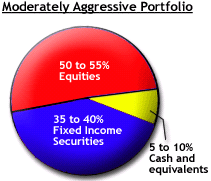By Chuck Jaffe
John Wiley & Sons
2010
All of the books in my Recommended Reading list (in the right hand menu) are books I recommend. Unfortunately, this one doesn't make the cut.
On the plus side, Jaffe lists several important questions everyone should ask an adviser they are considering working with. What are your qualifications? Who is your typical client? How do you charge for your services? Can I have some references? What makes me the kind of client you'd like to work with? How often will I hear from you?
However, the bulk of the book is a rehash of these same points in chapters on finding a broker, an insurance agent, a real estate agent, an accountant, a lawyer... you get the picture. 7 of the 15 chapters are almost identical.
The book does a good job of encouraging people to take time and care in selecting an adviser, but there are plenty of web sites offering the same information for free. A simple google search on "finding financial adviser" yields plenty of useful results.
My financial advice here? Save your $20.
N.B. I am not a financial advisor
Most financial advisors are little more than leeches, telling you whatever they think you want to hear so they can earn their commissions. Learn to invest for yourself. You can do it. Hopefully this blog will contribute to that a little bit.
Saturday, September 18, 2010
Tuesday, September 7, 2010
The Total Cost of ETF Ownership
Expense ratios are just one of the many costs of ETF ownership
The low cost of exchange-traded funds relative to traditional actively managed open end funds and index trackers is perhaps their most appealing feature. When looking at the cost savings of ETFs, and comparing one fund to another, most of us just look at the total expense ratio given in prospectuses and other literature. But expense ratios reflect just one of the many costs of ETF ownership. Costs of buying, selling, and potential hidden charges or earnings all affect the ultimate returns that shareholders get from a given ETF.Expatriates under-utilise offshore centres for savings and investing, survey finds
Expatriates under-utilise offshore centres for savings and investing, and their most popular investment vehicles are managed funds (16%) and foreign exchange (12%), according to HSBC Bank International's latest Expat Explorer survey.
Saturday, September 4, 2010
4 Steps To Building A Profitable Portfolio
In today's financial marketplace, a well-maintained portfolio is vital to any investor's success. As an individual investor, you need to know how to determine an asset allocation that best conforms to your personal investment goals and strategies. In other words, your portfolio should meet your future needs for capital and give you peace of mind. Investors can construct portfolios aligned to their goals and investment strategies by following a systematic approach. Here we go over some essential steps for taking such an approach.
Read the whole article on Investopedia here:
http://www.investopedia.com/articles/pf/05/060805.asp
Wednesday, September 1, 2010
I had to laugh...
Wow. Turn $200 into $10 million in one year! And you'll tell me for free? All you want is my e-mail address...
I laughed when I saw this in my in-box, but actually it's not very funny. There are a lot of people who try to prey on people who just don't know any better or who are in a difficult position and are ready to grasp at straws.
Help educate your family and friends about investing scams. Help them find out about realistic ways to improve their financial situation. And let's put the scammers out of business.
Subscribe to:
Comments (Atom)


